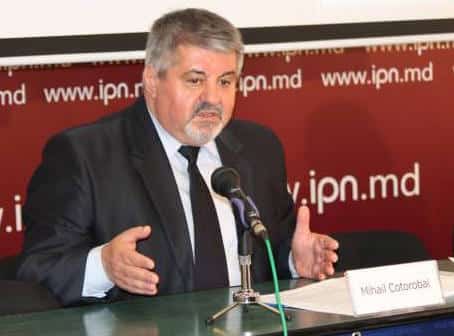Moldova has been among Europe’s hardest-hit countries during the COVID-19 pandemic. It has suffered more than 1,300 deaths and 55,000 cases. Now in the midst of a spike, its 19 deaths on Sept. 22 and 1,022 new cases on Oct. 1 were the highest daily totals to date. Its rate of deaths and cases now ranks among the top 30 worldwide.
At the same time, Moldova continues to struggle to improve human and civil rights protections for its citizens. Its performance on political rights and civil liberties is rated “partly free” by Freedom House, which ranks the third-lowest in Europe. European Parliament members say Moldova’s Nov. 1 presidential election will be a “test for democracy and the rule of law” amid “acute political instability.”
One staunch and steady voice who speaks for the people is Mihail Cotorobai, the head of Moldova’s Ombudsman’s office – better known as the People’s Advocate. A law professor for nearly 50 years, Cotorobai trained at the European Court of Human Rights, worked with the Venice Commission on constitutional reforms, and helped draft Moldova’s Constitution while serving in Parliament.
Along with his professional background and political accomplishments, Cotorobai is bolstered by a strong legal framework. The People’s Advocate only can be removed by a two-thirds’ vote in Parliament, is not legally liable for his or her opinions and actions, and is not subject to searches. People who try to influence the Ombudsman’s work, or who intentionally refuse to respond to the office’s recommendations, are subject to legal punishment.
So when medical professionals contacted the Ombudsman’s office to express their concerns about the response to COVID-19, Cotorobai and his staff responded loudly and clearly. The office issued a public statement warning that “any act of intimidation, revenge, or persecution of whistleblowers” may be punishable criminally. The statement called for an end to any retaliation against medical staff who reported inadequate personal protective equipment, and for these disclosures to be properly investigated.
Moldova passed one of Europe’s strongest whistleblower protection laws in 2018, and the Ombudsman’s office and National Anti-Corruption Center have worked continually to investigate whistleblower disclosures and protect employees from retaliation.
“More and more doctors are disclosing information of public interest. They have the status of whistleblowers and must benefit from all the guarantees of protection,” Cotorobai’s office announced. “These must be resolved in order to fully ensure people’s right to health and life.”
In cooperation the UN Development Programme, the Ombudsman produced and circulated a video to assist medical workers wishing to report misconduct or inadequate care.
The Ombudsman’s office has made many public statements throughout the pandemic, many of which are widely published in national media. The office has called for additional funding for adequate medical equipment and protection of doctors, greater protections and care for children, preserving media freedom, reducing overcrowding in detention facilities, and anti–discrimination protection for the LGBTQ community.
In the face of opposition, Cotorobai remains committed to the rights of Moldovan citizens – now more than ever. “In private discussions, I was told that what I do is not patriotic. It is a pity that this attitude derives from a gross misinterpretation of the role and mission of the Ombudsman,” Cotorobai told the Moldovan news service IPN. “Coronavirus cannot annul human rights.”


